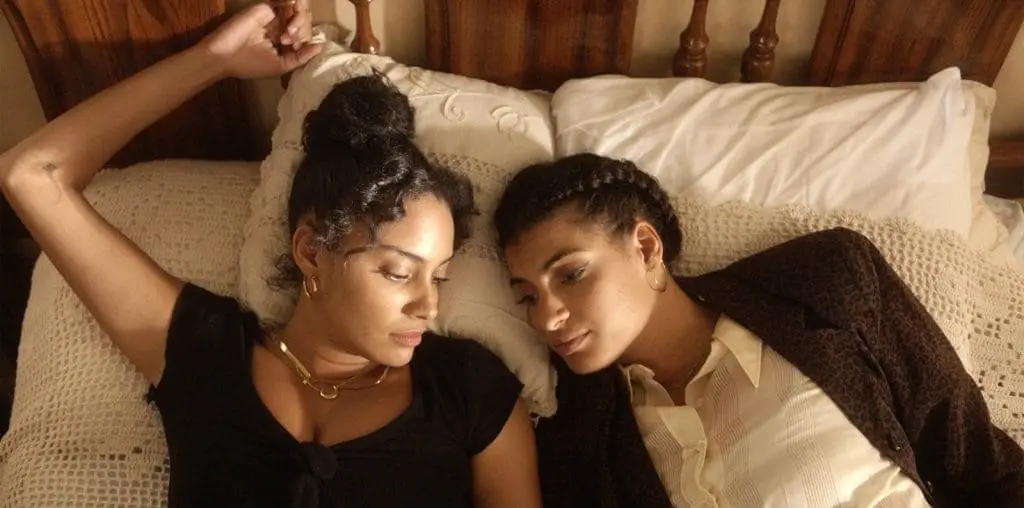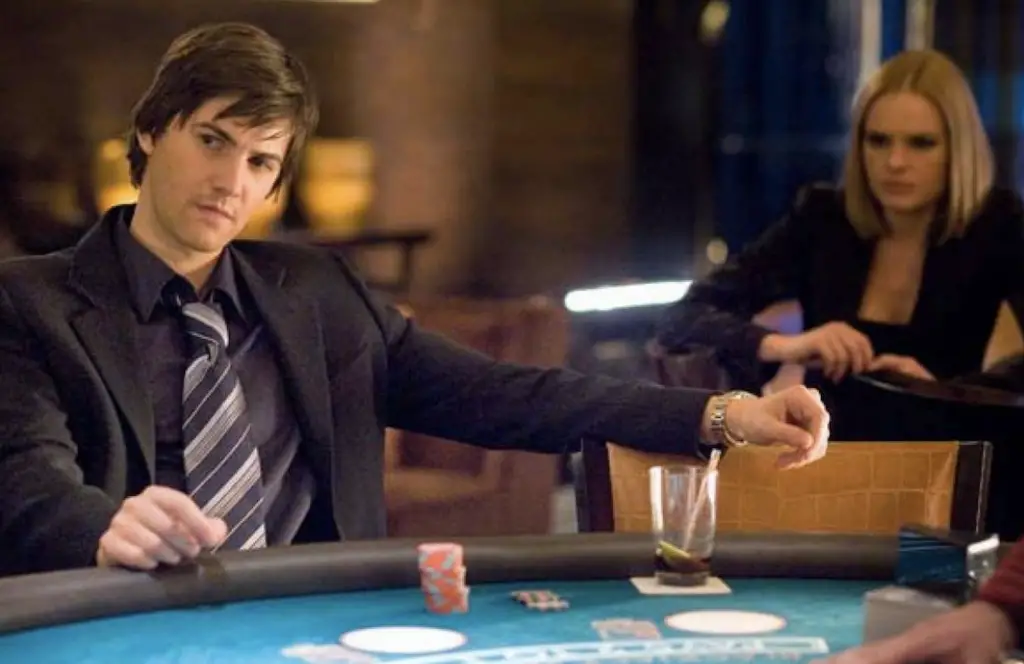
A******s is a love story between two drug addicts, Adah and Aaron, who are literally and figuratively “a******s.” The film falls into the category of shock comedy with its numerous loud and over-the-top treatise on the word “a*****e.” But A******s director Peter Vack sees his film differently.
I spoke with Vack about producing his first feature film, his perspective on creating a shock comedy, collaborating with his cast and crew, his philosophy about self-funding the feature and encouraging fellow filmmakers about making films that are personal journeys versus commercial.

“…the fun and the joy of filmmaking, for me, is the collaboration with the other artists on set.”
Tell me about your film A******s.
Well, the synopsis that I like to give is that it’s about two sober drug addicts, who meet in their psychoanalyst’s waiting room, relapse, fall in love, and become the biggest a******s in New York City. That’s how I like to describe the film.
I saw a couple of the reviews, and “gross” is a word I see a lot. To me, it definitely pushes a lot of the boundaries. Has it arrived at the level of controversial yet?
Well, I don’t know if that’s really for me to decide. It does seem like the movie is sparking some controversy, based on what journalists have written about it, and continue to write about it. I knew, going into the movie, that certain elements of the film might be seen as controversial. I think that it might surprise you, but being controversial wasn’t the main goal of making this movie. I wanted to make an absurdist comedy that was also a love story, and that dealt with some issues that felt pertinent to me.
But the narrative of this movie has received uses words like gross, disgusting, and “shock comedy.” I didn’t know what “shock comedy” even was until those words were written about A******s. And now, I understand that’s like a genre of movie. That’s kind of the beautiful thing about filmmaking, or making any sort of creative work. Your intentions as the filmmaker may be meaningless when weighed against the response of the audience.

“It’s still possible to make weird, punk rock, DIY movies.”
What struck me was the fact that there was an actual story to A******s, and there seemed to be a level of logic and thought put into the entire film.
Well good, I’m glad you see that. I think not everyone does. I think that there’s a lot of very loud elements to this movie, and some overshadow the core story. But it’s heartening to me that you recognize that this is a movie about characters, and a journey that they take. It is not just a series of shocking images or perverse jokes. Let’s be honest; it is just a series of shocking images and perverse jokes. In fact, it’s both. I am always happy when people can see that both of those things exist in the same expression.
Where did the idea come from?
That is an impossible question to answer, and it’s the one that is asked most frequently. I think the way that I approach my work, I guess now, and this could change, but I feel that I write things from a sort of an impulsive and intuitive place. And it isn’t until later that I’m even able to understand what it is that I have done.
I knew when I was writing this screenplay, that it was a love story. And I knew that, at a certain point in the writing of the screenplay, that I wanted to take the movie in a wildly different direction because I was, myself, angry with the characters and at the world. I had a movie that had the texture of an upper-class Manhattan comedy of manners in the vein of Whit Stillman or Lena Dunham. Which was not really the film I wanted to make.
The only way I could reconcile continuing this screenplay, was by giving it a B-movie treatment, and taking it to an underground, extreme piece. And so that was sort of the balance of ideas when I was writing and making the movie, and actors are involved in locations. It sort of becomes an amalgam of the ideas you had writing and the ideas of the actors and your other collaborators. Hopefully, it becomes something that’s greater than the sum of your ideas.

“And I think there need to be more movies that are weird and not commercial…”
It sounds like collaboration key in making A******s. Did it give you a sense of what can you get away with, what the actors were comfortable with, and what locations can you use?
Yeah, 100%. I mean, the fun and the joy of filmmaking, for me, is the collaboration with the other artists on set. When a film is going well, it is because it is a total collaboration. As a director, you go in with an almost dictatorial idea of what you want. But unlike a dictator, you have to be fluid. It’s this sort of managing a paradoxical balance between being dictator, and being a mother. The idea of being a mother is not necessarily letting your children do whatever they want, but it’s about being open. Being open to whatever they might want, and curious about what they want, and knowing when to allow for certain things to happen and when to disallow others. That’s really the main joy of filmmaking. I think of my collaborators on A******s: Betsey Brown, Jack Dunphy, and Justin Zweifach, and the makeup artist, Ben Gojer, and the production designer, Jane Ji. All these people I mentioned are true artists with so many of the ideas.
I’ll tell you this. When I watched the film, every single one of my favorite moments was not my idea. The moments may have been based on something I wrote, but It became a complete reinterpretation by the artist doing it. That’s always the most fun when the artists you work with take the seed of your idea and presents you with a beautiful flowering plant that you just never could have imagined. That’s the very core of what makes filmmaking so rewarding.
You mentioned your cast. Specifically, your leads, I think really saved the film. That’s probably an overstatement, but it’s just the fact that ultimately they were somewhat likable characters. As bad as they are, we do get a sense that they are in love, and that they are real people with real problems.
Well, thank you for mentioning that. To say that it was a paramount concern is almost not even strong enough language. For me, in making any film, the very first layer of soil needs to be performances that are believable. Without that, truly nothing cool or interesting or fun or surprising can grow. I’m interested in taking a performance and sort of heightening it, but it always needs to come from a place of truth.
And yes, the actors that are in the movie are brilliant. We were not thinking that we were making a movie that was really absurd or gross. We were just genuine. Genuine is a… it’s funny, I feel like word genuine is scary, because we live in a world that I’m not sure favors the genuine person or expression. We were going for, each day on set, truthful moments and creating real people in heightened, absurd, bizarre, scary, self-destructive situations.

“I knew when I was writing this screenplay, that it was a love story.”
Let’s go back to the just getting A******s off the ground. What was it like putting the movie together creatively? And then financing. I would imagine you’re selling everything you have to do constantly, especially in those beginning stages.
Well, I funded the movie myself, so I didn’t have to sell it to anyone. Which I mention, because I’m not sure this movie would ever have gotten made. Imagine the very first sentence out of my mouth in a pitch meeting to investors. I would imagine it would go something like this.
“Hello, I have a movie called A******s, and it’s about people who have an anal fetish, and my sister, Betsey, who’s my actual sister, is going to play the lead, and my parents are also in it.” At that point, I imagine a door getting slammed in my face, or maybe a phone being picked up to call the police or a mental hospital.
I say this to say no one would have given me the money but myself. And I’m lucky that I occasionally get hired in this world of television acting, that is very lucrative. I’m also lucky; I don’t really need … let’s just say; I don’t want to have a comfortable amount of money in the bank. I would prefer to have a film instead. Sure, I would be better off financially, if I didn’t make this film, but spiritually, creatively, I think I would be poor. And that is… knock on wood… I manage to keep myself afloat with acting gigs. I see it as a great privilege that I was able to fund this movie myself, and I also hope that this movie is something of a critique of privilege.
It was all from you, or was there like a Kickstarter or a crowdsourcing?
In the end, we attached to a couple of small investors, and also Kickstarter. But the initial funds all came from me. It’s important for me to be transparent about that because I wouldn’t want to mislead the world into thinking that someone gave me money to make this movie. Sometimes I think that it’s important for filmmakers to fund their own work, especially their first feature.
Because all the young filmmakers reading this will know that your first film is the hardest to get made, to get funded, because you’re untested, and even a cheap movie in the world of films, is still a lot of money. It’s still a big investment.

“…your first film is the hardest to get made, to get funded, because you’re untested…”
A******s is being released in New York and LA, and then to video on demand (VOD). So you’ve got some support what your marketing strategy is?
I’m not a genius marketer, myself. And I think my distributors are really passionate about pushing it out there, and I’m really grateful to them. But for me, I see this movie finding its audience over time. I’ve found people that love this movie really love it. The people that hate the movie really hate it. I think both feelings will hopefully conspire to sort of guide this movie to the people that will appreciate it. So I see this being like a word-of-mouth film, that builds in reputation over time.
Living in conservative Orange County, I know most people will be turned off based on the title alone, but there are certain people I know, where it’s like, “You’ve got to see this film. And just sit there and just watch it, and you’ll be amazed.”
That’s music to my ears, man. I really appreciate you saying that. That very recommendation is sort of what I am banking on and hoping for, and very moved and delighted to hear you say.

“My advice is to try to find a way to do it. No matter what.”
What’s your advice to filmmakers who kind of want to make the off-the-beaten-path film? And you mentioned raising your money upfront for that first feature.
My advice is to try to find a way to do it. No matter what. I’m in a ridiculously lucky and privileged position that I got cast on a television show that paid me enough money to fund the feature. But the amazing thing about the moment we live in is that the means of film production are becoming cheaper and cheaper. I just acted in my friend’s short film, and he shot it on a camera with the body size of a DSLR in the 4K footage.
If you have the creativity and the vision, just to do whatever you can to make your weird movie. And I think there need to be more movies that are weird and not commercial entities. As a viewer, the most exciting kind of feature film to watch is one that isn’t trying to be a commercial product. Whether it becomes one or not, that is up to the marketplace. But I love when I see a movie that was made for the sake of art, for lack of a better word.
Those are the movies that really inspire me, and I know inspire others too. I just want people to do whatever they can to make it, even if that means doing all the foley yourself, which I know filmmakers who do, or shooting it all yourself. Take David Lynch. It took Lynch five years to make Eraserhead. It’s still possible. It’s still possible to make weird, punk rock, DIY movies. And they don’t even have to be weird. They can be really normal, as long as they’re personal. I just want to see personal movies.
One common thing I hear from filmmakers is: the worst thing a creator can do is NOT create.
Yeah, to not create, for sure. That’s the primary sin. And then the secondary sin is create for someone other than him or herself, or their self. I see that happening a lot. I really find myself deeply allergic to work that feels made to appeal to the masses or to appeal to somebody the marketplace wants.



